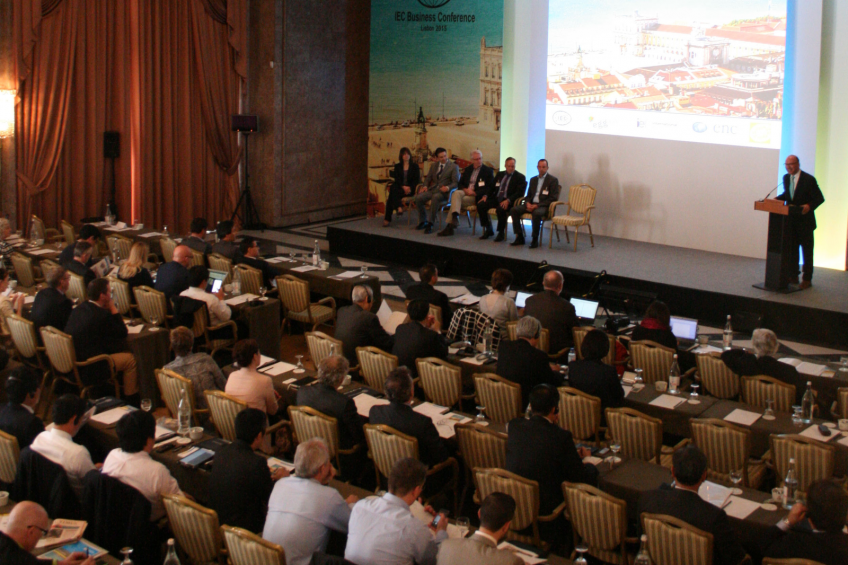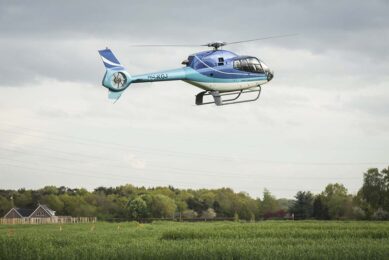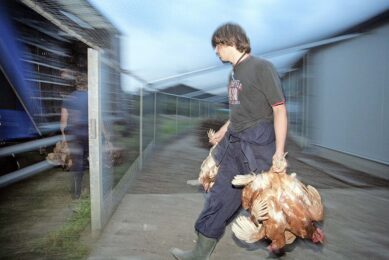IEC conference: Avian influenza and welfare

Egg industry leaders came together at the International Egg Commission conference in Lisbon at a time of crisis. A global threat called avian influenza was foremost on everyone’s mind. That, and the ongoing animal welfare discussion around beak-trimming and male layer chicks, were the main focuses of the meeting.
Chairman Cesar de Anda opened the meeting with his vision: “I’m dreaming of a situation where the egg is the most important food stuff in nourishing the world’s population. Our protein source has all the potential and is already very important. That said, at the moment we are at war, at war with avian influenza.” According to the chairman the poultry sector has to reinvent itself to cope with the current challenges. “We can use this crisis as an opportunity to prepare us for the future. It is in times of crisis when people with different viewpoints come together. If I am honest the industry was hesitant for a long time to join forces, share know-how and tackle problems, due to traditions. Traditions which moved along two lines, one being the stamping out of influenza locally and the other being ignoring the problem and closing borders to trade.” Under his guidance the first steps where made to break with tradition.
Animal welfare – beak trimming, disposal of male layer chicks
Less urgent than the threat of avian influenza, but still relevant in the egg industry is animal welfare. During the IEC meeting some light was shed on the future of beak trimming and the growing societal demands when it comes to the disposal of male layer chicks. Mark Williams, Chief Executive Officer at the British Egg Industry Council (UK), presented the different beak trimming systems from the traditional hot blade to infra-red trimming. “The industry has come a long way and improved animal welfare a great deal. That said, in society the differences in treatment are not clear.” He stated that the debate about banning beak-trimming all together is a geographical question in the EU, where Northern and Scandinavian countries have either banned it or are considering banning it. “In the rest of the world it is no issue; not yet.”
The same continental divide can be seen on the issue of the male layer chicks. Frans van Sambeek, R&D Director at Hendrix, and Peter van Horne, IEC Economic Analyst, addressed the question about what to do with the male layer chicks because destroying them, even if there is a valid use in pet food, is fast losing societal support. Possible solutions like dual purpose birds and combi-chickens, sound good, but when doing the math are not profitable. First steps in embryo sexing look more promising, but have to be explored further. Van Sambeek: “These techniques are costly, but do have advantages as well. When we as an industry would be able to determine gender before placing the eggs in the hatchery, the whole operation would become 50% more efficient.” Unfortunately at the moment, there is no working solution for the male layer chicks, but work is in progress.
World Egg Organization
What is in a name, one could wonder. However, when discussing with the United Nations, World Food program, World Bank and with high level government officials, a name does matter. That is why the International Egg Commission decided on a new name for all their subcommittees and foundations; World Egg Organization. IEC secretary Julian Madeley: “That doesn’t change the organisation itself, but gives even the smallest working groups the necessary status. World Egg Organization that is the new brand name where the International Egg Foundation (IEF), an independent charity whose purpose is to increase egg production and egg consumption in the developing countries and for example our International Egg Nutrition Consortium (IENC), which was created to provide member countries with a vehicle for sharing health, nutrition, and research information and advice, will do their good work from now on.”
Join 31,000+ subscribers
Subscribe to our newsletter to stay updated about all the need-to-know content in the poultry sector, three times a week. Beheer
Beheer








 WP Admin
WP Admin  Bewerk bericht
Bewerk bericht